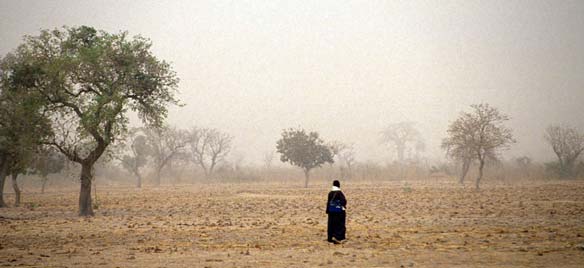Case-study /
Mali: National Economic, Environment and Development Study (NEEDS) for Climate Change Project


Farmland in Mali © cap.org.za
National Development Plans and Priorities in the context of Climate Change
Mali’s economy is dependent upon the country’s natural resources. However, population growth and climate hazards, characterized mainly by repeated drought, have resulted in the over-exploitation and deterioration of these resources. As a result, preserving the integrity of the natural environment in Mali has considerable economic repercussions. The country’s major goals are:
- To include climate change in all sectoral policies and in development planning at all levels (national, regional and local);
- To reduce desertification and the silting of riverbeds, including the Niger river;
- To protect fauna and aquatic species.
Mali’s Strategic Framework for Growth and Poverty Reduction (SFGPR) supports the implementation of the objectives of its National Environmental Protection Policy. The objective of this Policy is to achieve sustainable economic and social development by ensuring food security, reducing pollution, reducing the degradation of natural resources, and preventing further desertification. In 2007, 19 project ideas were developed as part of the country’s National Adaptation Programmes of Action (NAPA). These projects were in compliance with the specifications of Mali’s SFGPR and its Rural Development Strategy, and aligned to the provisions of post-Rio conventions
Lessons Learned
The country’s SEDP and Agricultural Orientation Law constitute opportunities to integrate climate change into Mali’s national development priorities. Translation of these policy guidelines into action at the local level, and the implementation of adaptation programmes at the community level are ongoing challenges for the country requiring certain level of community ownership in order to be successful. In addition, establishing an National Committee on Climate Change will give impetus to the integration of climate change into the country’s national development priorities.
